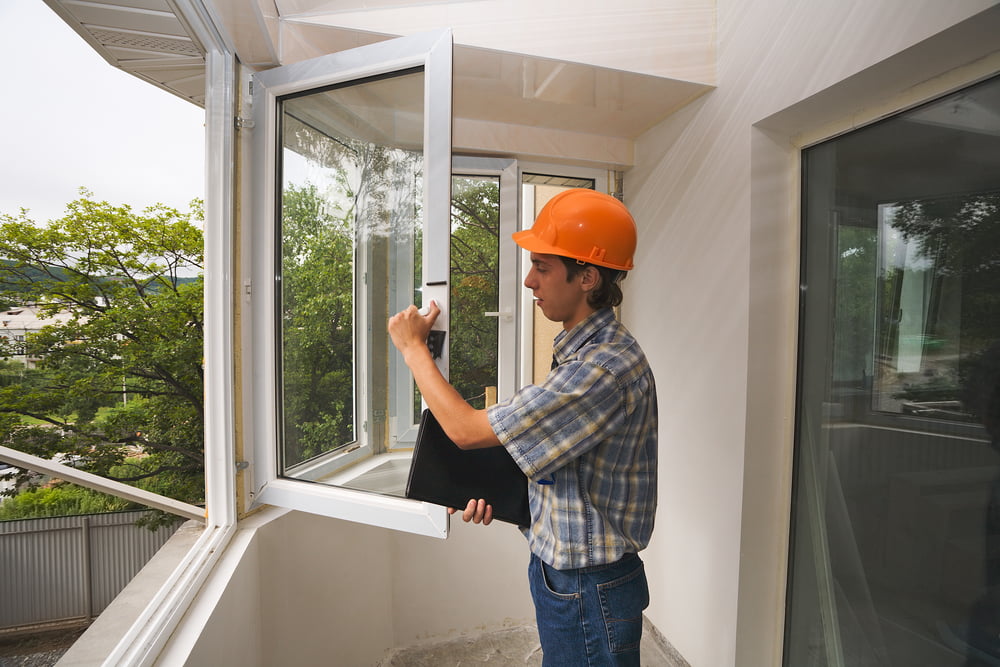Your home’s your castle. Your rights to peace and privacy are given significant priority and protection under law. You’d be sadly mistaken if you thought that those protections are only for home owners. Tenants renting a residential property are also protected from activities that invade their privacy, and this potentially includes building inspections.
Tenants Rights Are Protected
As a prospective buyer of a tenanted property, your planned building inspection amounts to a significant invasion of a renter’s personal space. You can’t just waltz on in and start crawling around the roof space. There are strict rules to follow about giving notice. Fail to comply and you’ll miss your one and only opportunity to get an expert opinion on whether your dream home’s all it’s cracked up to be. So, how do you go about organising a building inspection on a tenanted property?
The crucial steps to getting access for building inspections on tenanted property
The key to getting a building inspection done on a tenanted property is that the agent or landlord of the property has to comply fully with statutory obligations to give sufficient notice. The rights and responsibilities of lessors (landlords) and tenants are governed for the most part by the Residential Tenancies and Rooming Accommodation Act 2008 (Qld). Under that Act, the obligation to give a tenant sufficient notice is not satisfied by you knocking on the door or ringing them to say that a building inspector will be calling past.
It may sound obvious, but the first step is for you to ensure that the tenant knows that their home’s on the market!
Letting the tenant know their home’s on the market
The person selling the property (i.e. The landlord or agent) has to let the tenant know that they’re selling the property. They do this by giving their tenant a Form 10 – Notice of Lessor’s Intention to Sell Premises. This is a crucial step in the process because a tenant has to be given this notice before potential purchasers can even be shown through the property and before any pre-purchase building inspections can be carried out.
Specifically, the Form 10 requires a seller (the lessor or tenant’s landlord or agent) to disclose to a tenant the sales strategy that they propose to adopt for the campaign, including:
- holding an ‘open house’ or a public auction (only if the tenant agrees)
- showing prospective purchasers through the property
- the admission of ‘secondary agents’ to the property (agents who are not the renting agent).
If you’re planning on getting a building inspection done you should make inquiries as to whether the seller or agent has discharged their obligation to give notice to the tenant that the property’s up for sale. Only then can you move to the next step of organising a building inspection.
Getting the tenant’s permission for a building inspection
Making sure the tenant knows that the property’s on the market is the first hurdle of several. The agent or landlord will then either
- secure the tenant’s permission for a building inspection to be carried out or,
- in the absence of the tenant’s permission, comply with notice obligations.
In an ideal world, your dream property’s occupied by a friendly tenant who’s happy to roll out the red carpet for your building inspector. They’ll put the kettle on and give them a guided tour of the building’s major faults and flaws, as well as a colourful running commentary on the neighbours. If the tenant gives their permission for a building inspection to be carried out, that’s wonderful. If not, the agent or landlord will issue a Form 9 Entry Notice.
The tenant says no to your proposed building inspection – Where to next?
Finding out that their home’s on the market can come as a rude shock for a tenant, especially if they’ve lived there for a long time.
Even if the owner of the property’s given adequate notice to the tenant, it doesn’t necessarily follow that the tenant’s going to be jumping for joy. It often means they’ll have to find another rental property, pack up their belongings and move away. They may need to uproot their kids and pets and will face a time-consuming, expensive and incredibly inconvenient period ahead. It’s worth keeping all of this in mind.
Having a house on the market that you don’t own is also a massive invasion of privacy, and privacy is one of the central rights afforded protection under Queensland tenancy law. Under the Residential Tenancies and Rooming Accommodation Act 2008 (Qld), tenants have the right to ‘quiet enjoyment of the property’. That means ‘reasonable peace, comfort or privacy’ – which is likely to be disrupted by agents and potential buyers.
But even where a tenant refuses permission for a building inspection, their opposition won’t necessarily be an insurmountable obstacle to getting a building inspection done so long as the landlord or agent do the right thing. This means adhering to the correct procedure when it comes to giving notice about an impending building inspection, and serving the tenant with the correct paperwork. Different notice periods apply to different types of inspections under the act.
Getting the process right when it comes to organising a building inspection
The key to understanding your rights when it comes to getting a pre-purchase building inspection carried out on a tenanted property boils down to understanding the difference between
- inspections that tenants are routinely subjected to, and
- inspections by third parties such as your building inspector.
Get the two mixed up and you’ll land yourself in hot water.
Routine inspections
Generally speaking, a routine inspection of a tenanted property is an inspection that’s carried out by or on behalf of a landlord. It aims to ensure that the tenants are keeping the property neat and tidy and that there aren’t any major concerns or safety problems. A routine inspection can be carried out as often as once every 3 months. A landlord has to give a minimum of 7 days’ notice prior to a routine inspection.
Building inspections
A pre-purchase building inspection is not a routine inspection. Different rules apply. It’s really important that you understand that even if the lessor gives you the go-ahead, you can’t use a routine inspection as a kind of Trojan horse to sneak in a building inspection. Special rules and requirements apply when a house is on the market. Most specifically, you have to ensure that the seller (i.e. the landlord or agent) gives the tenant the right amount of notice and that it’s in the correct form.
Entry notice for the purpose of a building inspection
Part 3 of the Residential Tenancies and Rooming Accommodation Act 2008 (Qld) sets out where a lessor (and their agents and third parties) have a right of entry to the property. Lessors have a right of entry to the property where the tenant agrees. However, as we’ve already discussed, the tenant might not agree. If the tenant doesn’t agree and if the landlord wants to show the property to a prospective buyer, the landlord must give them notice of the proposed entry. This is called the ‘entry notice’. The entry notice has to be given at least 24 hours before the proposed entry.
Section 195 of the Act also governs when such an entry can be made. For example, it must be made at a reasonable time, not on a public holiday and, for the most part, not at certain times on a Sunday.
How does that affect you as a would-be purchaser of tenanted property? It means that you need to be keenly aware of the fact that there are strict limitations on how and when you can get a building inspection done. In the context of a fast-moving property market, that means the window of opportunity to get a comprehensive building inspection done is a very small one.
For further information on entry notices please refer to the RTA website.
Other things to keep in mind when getting building inspections done on a tenanted property
Getting a building inspection done on a tenanted property is a bit of a balancing exercise. It isn’t just enough to comply with your statutory obligations to give the right amount and correct form of notice.
It’s also about ensuring that you use a building inspector who can carry out a building inspection in a respectful, professional and thorough manner. It’s crucial that they’ve got excellent communication skills to negotiate entry or to follow up and ensure that notice obligations have been satisfied in the absence of the tenant’s permission. Not only that, but you want them to have a real appreciation of the tight timelines that apply. Most of all, you want them to have a keen sense of urgency so that they can capitalise on the small window of opportunity to carry out a building inspection as it arises.

